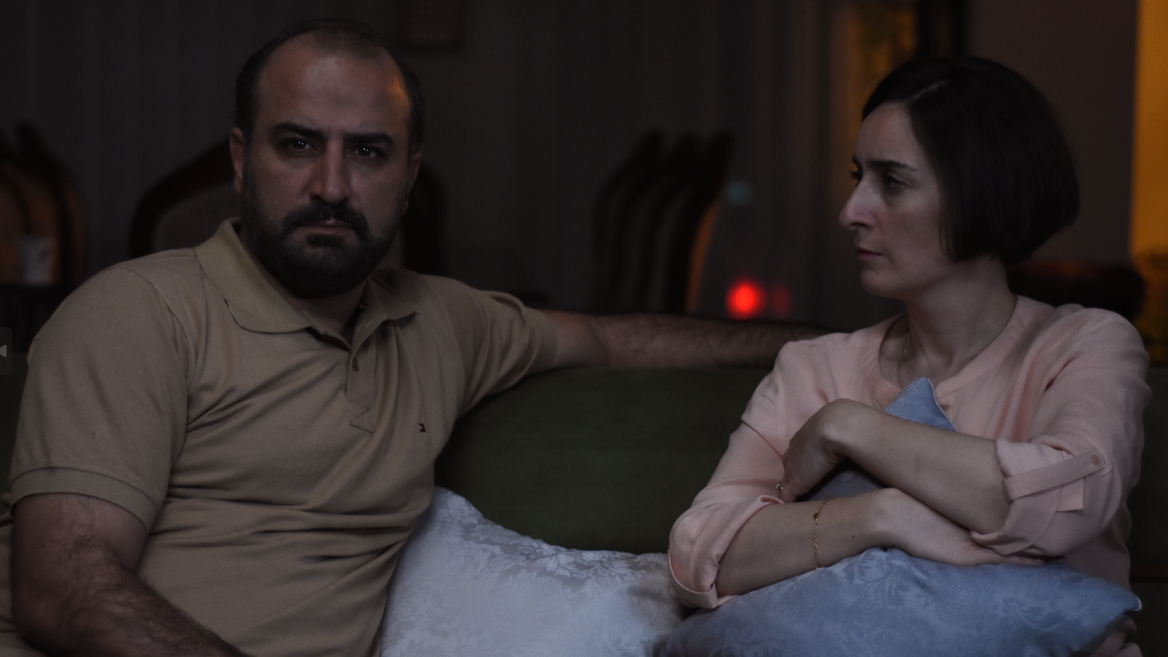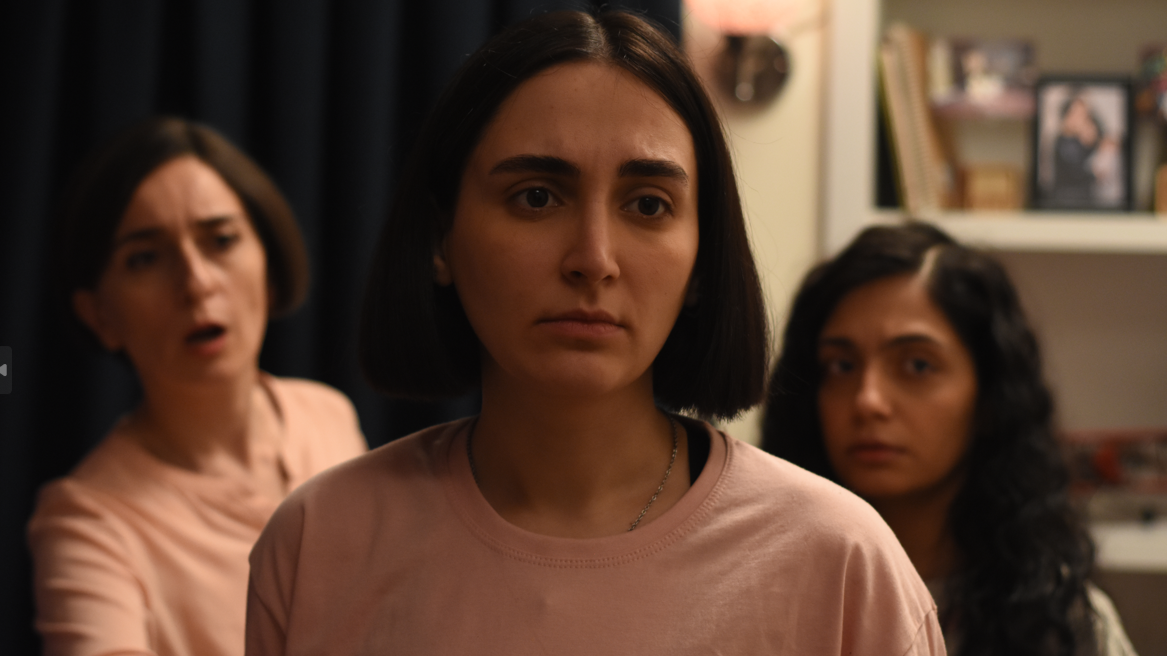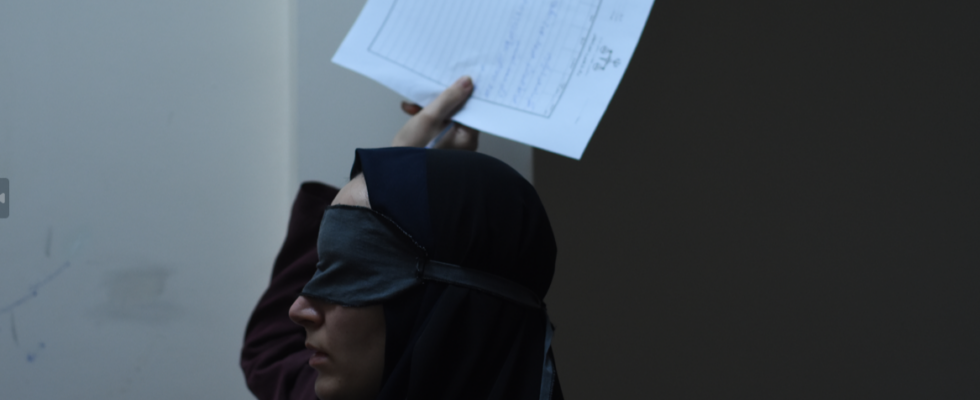He was doubly successful. His incredible escape from Iran and his new film. “The Seeds of the Wild Fig Tree”, excellent, was presented this Friday, May 24 in competition at the Cannes Film Festival. Having become even more of a symbol of artistic freedom after the Iranian regime’s condemnation, director Mohammad Rasoulof, smiling in a suit and black tie on the red carpet as he ascended the steps, received a very long standing ovation.
7 mins
The fig tree is a very special tree. A metaphor for a society that is deeply sick, but ready to rise up, the film helps to sow the seeds of a movement that will never stop. Before presenting, accompanied by members of his team, his new work to the world, Mohammad Rasoulof held up two photos showing portraits of those who remained in Iran…
Feared by the Iranian regime for his stance against the scourge of corruption in his country, Rasoulof was sentenced a month ago to 8 years in prison, including 5 years applicable, flogging and confiscation of property. for collusion against national security “. Thus, he was forced to flee his country. An exhausting and very difficult escape on foot through the mountains, three very risky weeks for Rasoulof, but also for everyone who helped him. Eventually arriving in Germany, he received political asylum and the support necessary to show Cannes his film at the biggest cinema event in the world.
“The Seeds of the Wild Fig Tree”, standing up against injustice
Through the intransigence of its images and the power of its messages, the film can be interpreted as a true fusion between the protest movements and the reality experienced by Rasoulof in recent years in Iran, but Wild fig tree seeds is first and foremost a cinematographic work to experience. Even if Rasoulof uses a lot of videos posted on social networks in his film. Thus, he transforms his film into a collective work and brings the popular revolt into the form of vertical images literally rising up against injustice. His film does not just move people for 3 seconds or 3 minutes, but captivates us for almost 3 hours to allow us to follow evil to its roots.
Read alsoCannes Film Festival: who will win the 2024 Palme d’Or?
In the film, it all begins with Iman praying in a mosque, then a small party, because her wish was granted. At the restaurant, he tells his wife and two daughters the news. He was promoted. With, at stake, a big salary increase and a 4-room apartment. Now an investigating judge, he is a few steps away from his lifelong dream: to become a judge at the revolutionary court in Tehran. His wife, Najmeh, is the first to rejoice. She hopes to soon have a dishwasher given to her by her husband so that she and her two daughters no longer need to damage the skin on their pretty hands.
Turn your own house into a court
Unlike other Rasoulof films, in Wild fig tree seeds, evil no longer hides only in banality, in a moral or friendship dilemma, but appears in a fierce determination to keep and expand one’s privileges to the detriment of others. The evidence of injustice, immorality, the risk of losing one’s family, all this is no longer enough to admit having taken the wrong path in the twists and turns of a cruel and absurd system. Iman’s heart has become as cold as the ice water he loves to drink. Even if it means transforming your own house into a court and becoming one of those cardboard characters called investigating judges, represented in the film as immobile figures devoid of any feeling.
Iman got her job thanks to a friend. His predecessor was fired because he refused to sign a death sentence without having time to study the case. Iman, a loyal civil servant for twenty years, quickly finds himself stuck in a system that is beyond his control. Since promotion, the system enters with force inside his house, unfolds within his family, his intimate life. Even he feels like he’s betraying his beliefs. And the hoped-for prosperous life will turn into a prison where every step will be monitored and controlled. Within this family framework, Rasoulof interweaves the images shot for the film with the images broadcast during protests against the regime. The increasingly unbearable tension inside their beautiful home is fueled by the reality of the protests outside. For cooking recipes, mother-daughter transmission still works, but for political ideas, girls no longer accept the lies told on television or the authority of the father, visibly out of step with the images transmitted by social networks . “ The world has changed », advances the mother to play the role of mediator. “ The world has changed, but God has not changed » persists the father.

A duel of images and an ode to freedom
On Iranian television, the news talks about the death of Mahsa Amini, arrested for a poorly worn veil, and accuses the Woman, Life, Freedom movement. But when Rezvan and Sana leave the school and university, they see the police shooting at the demonstrators and feel solidarity with the cries “ Down with theocracy! ” And ” Death to dictators! “. The film shows to what extent fear has also taken root among the members of the regime. Iman will be equipped with a revolver to defend herself; another judge installed a security gate worthy of an airport in his house and even searches his visiting friends; and then the executioners see their names and addresses published on social networks and fear reprisals after hundreds of death sentences without any real basis.
One of the most spectacular scenes features a duel of images. Taken on camera and filmed by strangers at a gas station, the investigating judge fears for his safety and begins to pursue the whistleblowers’ car on the road. Himself at the wheel, he asks his daughter to film the suspects while he overtakes their car. Then they in turn trigger the video mode of their cell phone… And it is no coincidence that the most vulnerable moments are those without a cell phone or without a connection network.
With his exile and his appearance at the Cannes Film Festival, Mohammad Rasoulof reconnected with the world to continue to offer us his films and his truths. Wild fig tree seedsan ode to freedom…and to cinema.

